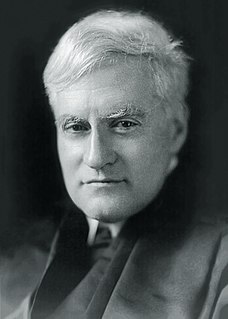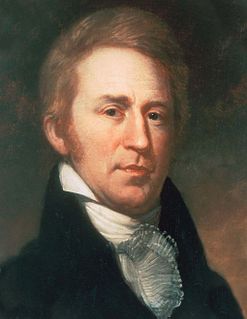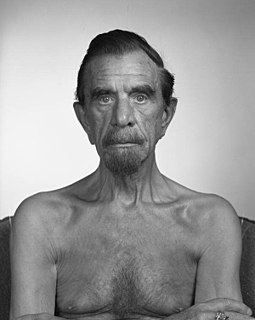A Quote by Joseph Addison
Vanity is the natural weakness of an ambitious man, which exposes him to the secret scorn and derision of those he converses with, and ruins the character he is so industrious to advance by it.
Related Quotes
It is a fair adornment of a man and a great convenience both to himself and to all those with whom he converses and deals, to act uprightly, uniformly, and consistently. The practice of piety frees a man from interior distraction and from irresolution in his mind, from duplicity or inconstancy in his character, and from confusion in his proceedings, and consequently securing for others freedom from deception and disappointment in their transactions with him.
He felt ... a suspicion-no, a conviction-than he had been abandoned, forgotten, and that no one in the whole world cared or would ever care enough about him to really find out what he was like and what his dreams were. He was an outcast, a creature somehow vastly different from all other people, an object of scorn and derision, an outsider, secretly loathed and ridiculed by everyone who met him, even by those few who professed to love him.
I think you may judge of a man’s character by the persons whose affection he seeks. If you find a man seeking only the affection of those who are great, depend upon it he is ambitious and self-seeking; but when you observe that a man seeks the affection of those who can do nothing for him, but for whom he must do everything, you know that he is not seeking himself, but that pure benevolence sways his heart.
For it is an absurdity to call a country civilized in which a decent and industrious man, laboriously mastering a trade which is valuble and necessary to the common weal, has no assurance that it will sustain him while he stands ready to practice it, or keep him out of the poorhouse when illness or age makes him idle.
When one speaks of humanity, the idea is fundamental that this is something which separates and distinguishes man from nature. In reality, however, there is no such separation: "natural" qualities and those called truly "human" are inseparably grown together. Man, in his highest and noblest capacities, is wholly nature and embodies its uncanny dual character. Those of his abilities which are terrifying and considered inhuman may even be the fertile soil out of which alone all humanity can grow in impulse, deed, and work.
Anger is certainly a kind of baseness; as it appears well in the weakness of those subjects in whom it reigns; children, women, old folks, sick folks. Only men must beware, that they carry their anger rather with scorn, than with fear; so that they may seem rather to be above the injury, than below it; which is a thing easily done, if a man will give law to himself in it.




































